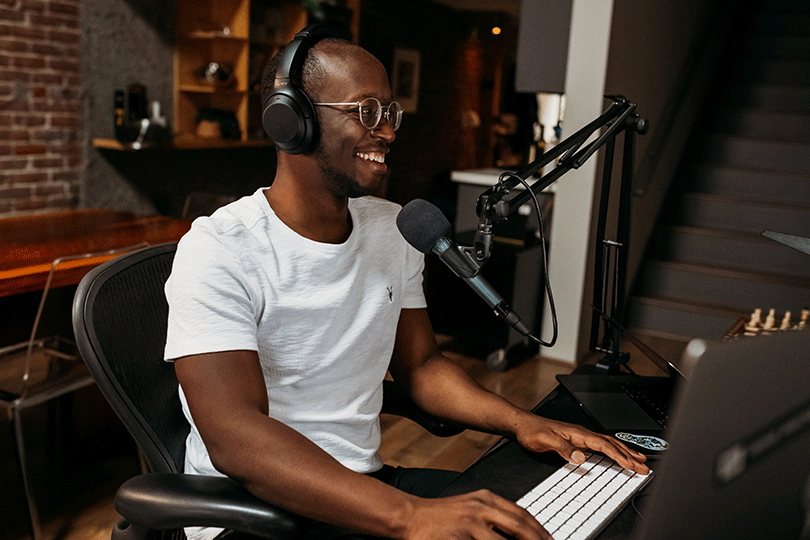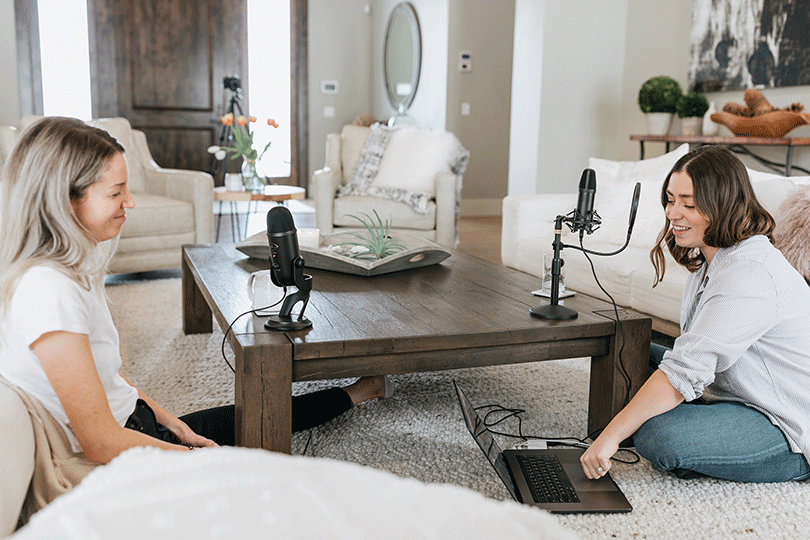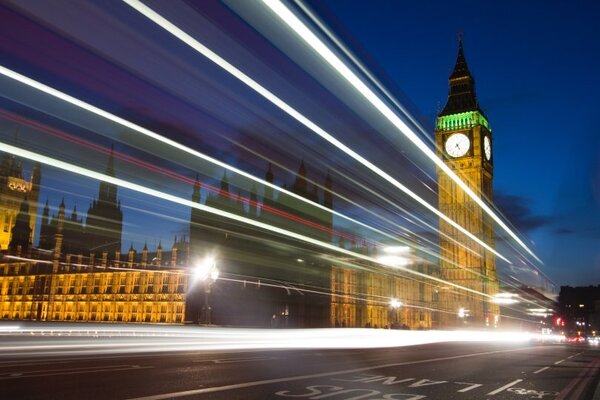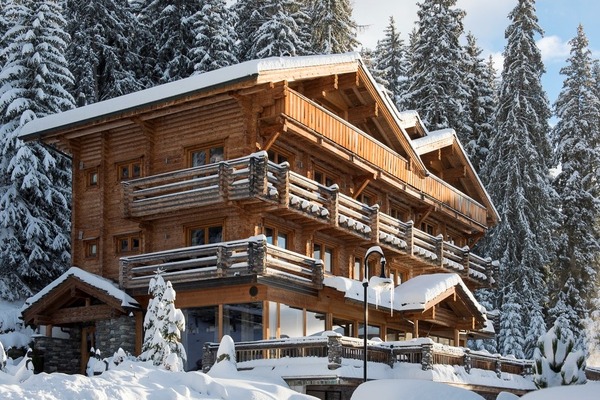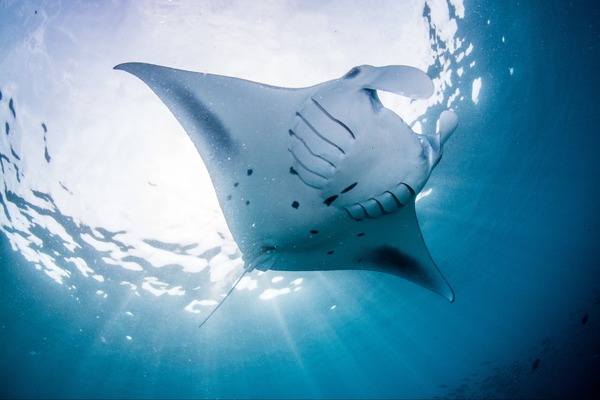How to podcast like a pro: agents take to the airwaves
When UK lockdowns shuttered the travel industry, some agents tuned in to the power of podcasts as a vehicle to engage with customers and position themselves as an authority – but how do you become a podcasting whizz?

A browse through podcast charts reveals top shows are based on true crime, comedy, sport – and increasingly, travel. These downloadable digital audio files are listened to on-demand and have become ever popular during the pandemic, with research by Rajar, the official body in charge of measuring radio audiences in the UK, showing weekly audiences increasing from 12% of adults listening to them in 2018, to 20% in 2021.
One mainstay in The Apple Podcasts chart is The Travel Diaries, which was launched by journalist Holly Rubenstein in July 2019, with the seventh season debuting this spring. It reaches 35,000 listeners each week across 160 countries.
Rubenstein says interest in podcasts has rocketed since she started recording, explaining: “It’s the fastest growing media medium in the world, and podcast advertising is the fastest growing marketing medium too.”
In each episode, she interviews a celebrity about their travels, with guests including actors Stanley Tucci and Hugh Bonneville, explorer Sir Ranulph Fiennes and perfumer Jo Malone.
Listeners tend to be female and aged between 25 and 45, and Rubenstein believes they listen for three key reasons. “First is escapism. This is relaxing transportive content. Secondly, I think they are interested in my celebrity guests and hearing where they like to travel,” she explains. “Lastly, I think they are often looking for travel inspiration themselves and the podcast has made them think about places to visit and destinations they may not have considered.”
Hit the airwaves
Brilliantly, the majority of podcasts are free and come as a series, helping secure a consistent audience. Among the travel firms that took to the airwaves during the Covid-19 pandemic is homeworking specialist Not Just Travel. The first episode of The Travel Podcast was released in May 2020, hosted by four of the team, including co-founder Steve Witt.
“No one was travelling, so it was an opportunity to keep consumers’ minds active with ideas and inspiration, and to keep them engaged with us and our travel consultants,” Witt explains.
None of the hosts had podcasting experience, but Witt says recording can be looked at as a natural extension of video calling. Interviews are conducted and recorded over video on Zoom, and the audio file is extracted and edited in a video editor.
The show is still running and the most downloaded episode focuses on Antigua, with lists of top hotels and travel trend round-ups also proving popular.
While episodes frequently generate enquiries and bookings, Witt doesn’t view them as advertising as such, more as an engagement tool. He is also adamant costs shouldn’t be a barrier to launching a podcast. He explains: “It’s very affordable, and can be done on a shoestring. We record on [wireless] earbuds or corded headphones and produce them all ourselves.”
The affordability of podcasts is a message echoed by Travel Counsellors Yvonne Campbell and Marie Rowe. They worked together to research and launch individual series at the start of the pandemic.
Rowe recommends budgeting £15 a month for a podcast hosting platform and around £100 an episode if professional editing and production are required. Each episode takes her approximately 10 hours to plan and record. She explains: “There is a cost, but it creates 20 minutes of content that adds real credibility to my business and makes me unique in my industry. It provides a ton of inspiration to someone I can then sell travel to.”
Rowe’s Real Life Travel & Adventure Holidays podcast launched in May 2020, showcasing activity ideas in destinations including the Seychelles and Mexico. Her 12 weekly episodes have been downloaded 2,000 times.
Alongside inspiring her audience when they were unable to travel during the pandemic, they continue to be downloaded by new listeners and are a useful sales tool. Rowe explains: “My podcasts are purely strategic, as they are about the destinations I want to sell more of. I wanted a bank of resources that I can send to people when they enquire, and they really seal the deal.”
In 2020 fellow Travel Counsellor Campbell made Otherworld Travel: The Bucket List Podcast, and in 2021 she created Life in Barbados: A Year on a Paradise Island, which charts her adventures living on the island.
The 26 weekly episodes from the second series have hit 10,000 downloads, and shows focusing on food and the Barbados Welcome Stamp working visa are frequently listened to.
Before they started recording, Rowe and Campbell invested in podcast coaching from specialist Podknows Podcasting, and founder Neal Veglio went on to edit and produce both their podcasts.
Campbell explains: “A lot of my episodes in Barbados were recorded on location, holding my phone as a microphone. Neal extracted the right bits, cleaned them up and made it sound like a Netflix documentary.”
Guest appearance
Like many podcast hosts, Campbell and Rowe speak to guests in each episode, including fellow travel experts, clients, suppliers and industry colleagues.
Incorporating at least two voices is key, explains Gary Gumbleton, the founder and creative director of digital agency Capital Content. He says: “Having one person speaking doesn’t work as well. People want to feel as though they’ve stumbled across a conversation, almost as if they are eavesdropping. So you want to have a debate, discussion or banter, as people will engage with that much more.”
Gumbleton’s team host, produce and edit podcasts for clients, and he recommends keeping episodes between 25 and 30 minutes long. He also suggests using each show to create “a content cascade” of at least 30 additional pieces of content. “If you did it over Zoom, take the video recording and upload it to your YouTube channel, and make 30 second trailers to use on social media. You can use a site like Rev.com to easily transcribe it into a blog. Use it for Tweets, and make graphic assets to use on social.”
Listeners normally access episodes through podcast platforms such as Spotify and Apple Podcasts, but Gumbleton also advises agents to host it on their website, and direct people there.
“If you send people to Spotify, you’ve lost them,” he says. “If your objective is to sell a holiday and you have an episode on Antigua, then host that on a dedicated Antigua page on your website, and surround it with calls to action.”
In 2021, Celebrity Cruises launched its Conversations with Celebrity podcast for agents, with new content released every four to six weeks. In each episode, training manager Leon Hand interviews the line’s leaders and team members, sharing training and selling tips.
Hand says great podcast content comes from “storytelling and not selling”. He explains: “Agents can use destination highlights and their own personal experiences to tell stories that are authentic and engaging. This excites curiosity and creates a natural desire to learn more, which can, and often does, lead to a sale.”
For those keen to sample the podcasting arena before committing, consider being a guest if you can. Kate Holroyd, director of Strawberry Holidays, has spoken on several business-orientated podcasts.
The shows give access to potential new clients and Holroyd highlights them to existing customers across her social channels. “If a podcast host is asking you about your expertise and business, then it builds authority,” she explains.
Holroyd uses online podcast community MatchMaker.fm to approach suitable podcast hosts, promoting her specialist subjects of travel and business. “Hosts definitely want to hear from experts, and I approach podcasters with the same audience as me. It doesn’t cost anything and it’s an incredibly valuable use of my time.”
5 ways to… make podcasts work
Super sound
Invest in a good microphone, as high-quality audio helps engage listeners, while poor sound deters people. Agents Holroyd and Rowe spent £20 and £40 respectively on theirs, and both find they deliver impressive recordings. For a professional mic, podcast expert Gumbleton recommends the Rode PodMic microphone, which costs around £80.
Maximise momentum
Not Just Travel’s Witt stresses the importance of maximising downloads on an episode’s release day, as ranking in the charts will tempt new listeners. When launching the first episode, consider also having others available. “By launching with essentially your fifth episode, people can also listen to the others and get hooked.”
Tempting titles
Rowe uses creative, descriptive episode titles, and one of her most popular is ‘Kayaking in glow worm caves: Adventures in New Zealand’. She often posts links to them in forums and on social media in response to users’ queries about destinations, and an eye-catching title helps encourage clicks.
Super sales
Gumbleton recommends overcoming typical customer objections to a type of holiday, destination or trip, by thoughtfully tackling them in an episode. He adds: “Then the next time someone raises the objection, you can explain that you’ve spoken about it on your podcast, and send them the link.”
Expect effort
Be prepared to put in the hours. The Travel Diaries’ Rubenstein says hit podcasts are the result of “intensive proactivity” in learning how to produce them, securing guests, reaching out to sponsors and publicising them. “A podcast simply won’t become a success without that level of effort,” she says.
